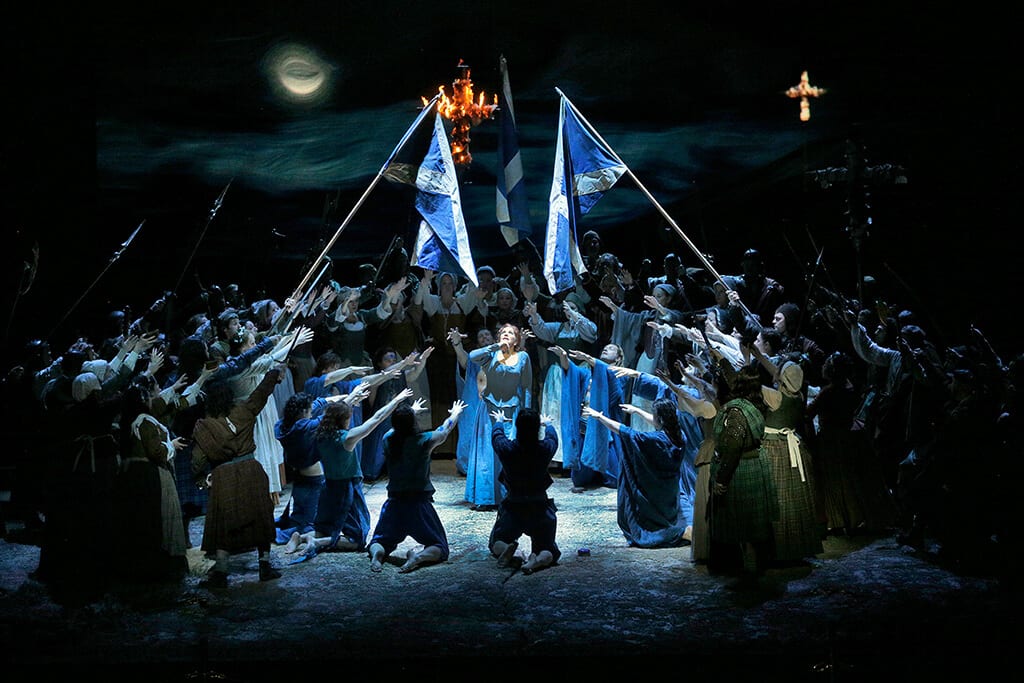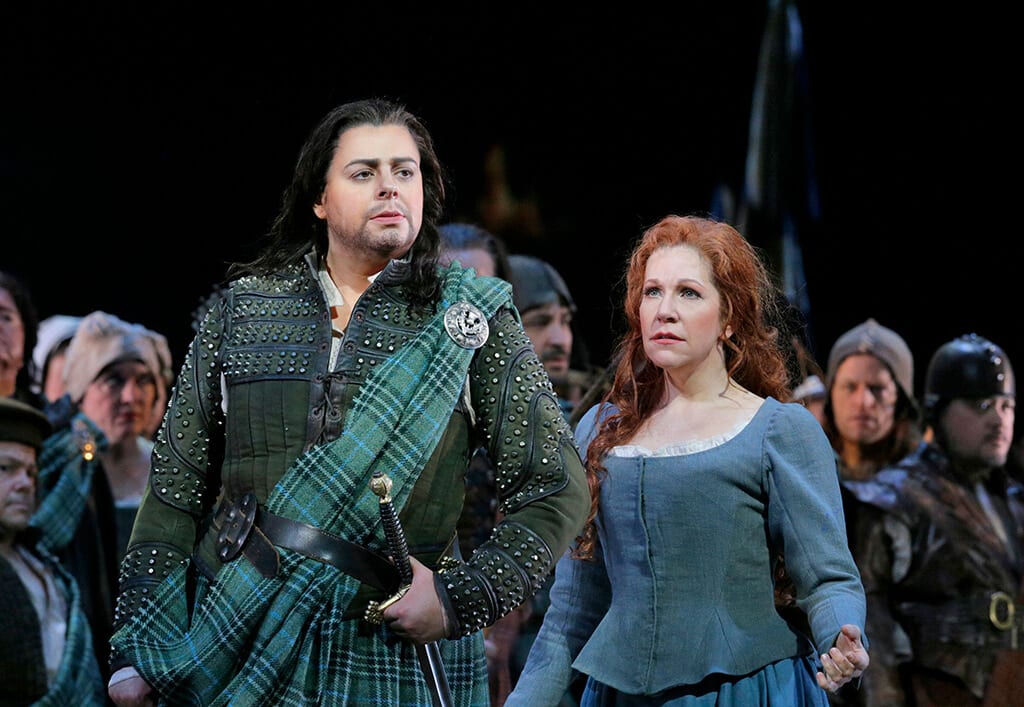Joyce DiDonato’s tone is rich and lustrous as Elena, the ardor-inspiring Lady of the Lake, with a depth and force equal to the emotional gales she carries us through with perfect conviction. Whether you’re a real aficionado or just an adventurous theatre-goer, the main reason to go to La Donna Del Lago at the Metropolitan Opera is to experience her luminous performance. This is “Bel Canto”, from a period when showmen like Rossini indulged audiences’ desire to see stars’ technical musical prowess displayed. DiDonato’s turn in the demanding finale, as secrets are revealed and the future is set aright, leaves us, and impressively not DiDonato, breathless.
Based on Sir Walter Scott’s poem about warring medieval Scottish clans, La Donna Del Lago was the first opera to draw on the romance of the windswept Highlands. Elena is the storied beauty of this remote, rugged place, the object of three suitors, each with his band of warriors. John Osborn is another standout as hyper-masculine, rebellion leader Roderick to whom Elena’s father has promised her hand if victorious. Lawrence Brownlee is winning and virtuosic as the love-struck, magnanimous young king roaming in disguise in the hopes of meeting the Lady of the Lake. Oren Gradus is a bit under-powered but satisfies as Elena’s father, the bass voice of duty.
Where opera aficionados and theatre-goers must part is on Daniela Barcellona, in the “trouser” role of Malcolm Groeme. Malcolm, Elena’s true love, is scored for a female mezzo-soprano, as is sometimes done in opera to convey a male youth. The audience leapt to its feet in appreciation of Ms. Barcelona’s impressive execution. But where I believed in Elena’s love for Malcolm, I never believed in Malcolm’s love for Elena. Her muted yearning made the sound feel mushy. And without Malcolm’s palpable anguish, shared with Elena, the emotional center of the drama does not hold.
Large, lusty choruses are part of the musical banquet in Rossini’s tuneful, accessible score, with his characteristic lively dynamics, set off by nearly seco recitative and arias filled with characters’ inner conflicts. Passion, duty, jealousy, pain, despair, and redemption are explored in the declamatory libretto. The ingredients are all there, but the storytelling and musical sweep we associate with, say, a Verdi, had yet to be invented.
Kevin Knight’s costumes help keep us straight with unobtrusive color coding–using earthy greens and russets and baronial blacks, until the final scene where we are treated to a shimmering royal court. His set, while inventive, seemed more like a superior City Opera set, where a strong stage piece is spotlighted and transformed over the course of the evening. The Met raises extremely high expectations in us for a no-holds-barred immersion in old fashioned realism. When there’s a parade, it will go on forever and there will be elephants. When it’s winter, snow will fall and seem to mount in drifts. Here we have a wonderful swath of grassy highlands, with a hill convincingly receding, but it’s all foreshortened, analytically framed, culminating in the now-staple screen for video projections. We might admire this anywhere else.
If you’ve never been to an opera, go at least once in your life, preferably to Verdi or Puccini, preferably at the Met. If it’s La Donna Del Lago, go, appreciate the musical artistry, but promise yourself not to stop there.





